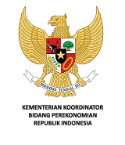Indonesia
Focus Group Discussion: Financing Models for Energy Efficiency
 |
 |
 |
|
Background
The Clean Energy Finance and Investment Review is one of the CEFIM Programme’s key outputs. It will provide an overview of the current policy environment and opportunities for renewable electricity and energy efficiency development in Indonesia, highlighting success stories and good practices as well as identifying areas where Indonesia could strengthen domestic enabling conditions for clean energy finance and investment. The Review endeavours to explore opportunities to accelerate clean energy development in Indonesia as well as consider socio-economic implications of the clean energy transition (e.g. gender equality, regional economy). It will contain an assessment of the current policy environment for clean energy finance and investment and provide recommendations that are actionable as well as mindful of potential trade-offs or adverse impacts.
Overview
Achieving a clean energy transition in Indonesia will require a substantial scale-up in energy efficiency finance and investments. Indonesia recently put forward ambitious targets to improve energy efficiency by 25 million barrels of oil equivalent in 2025. This will require engagement of industry, the buildings sector and energy management companies to unlock those energy efficiency investments to 2025 and beyond.
To date, the Government of Indonesia through the Ministry of Energy and Mineral Resources (MEMR) and other actors has supported multiple energy efficiency improvements and initiatives, in line with Indonesia’s target of 1% annual reduction in energy intensity. Wide-spread deployment of energy efficiency measures is still limited, however, and private finance for energy efficiency has substantial room for growth.
A number of measures can help turn the table, spark interest in energy efficiency projects in Indonesia and draw investors in those clean energy projects. These include seasoned energy efficiency finance models, such as dedicated credit lines and risk-sharing facilities, which can be used to engage and encourage private capital for energy efficiency finance and investments.
This FGD considered enabling frameworks for energy efficiency investments, pulling from Indonesian and international experiences with energy finance models such as dedicated credit and risk-sharing facilities as well as with energy efficiency obligation schemes. The FGD aimed to explore experience with public private partnership (PPP) in Indonesia, notably since the implementation of PP no. 38/2015, and identify opportunities to expand the use of PPPs for energy efficiency, while equally considering international best practice and lessons learned for financing models that stimulate private sector investment in energy efficiency. The FGD also aimed to assess investor/industry expectations and barriers/opportunities to unlock energy efficiency investments in Indonesia.
Presentations
Speaker presentations
- Bapak Hariyanto, Director of Energy Conservation MEMR; “Energy Conservation Investment in Indonesia”
- Bapak Jon Respati, Director of Energy Conservation and Chairman, MASKEEI; “Financing Models for Energy Efficiency”
Panellists
- Stephan Skare Enevoldsen, Danish Energy Agency; “Lessons from Denmark: Government measures to promote EE in industry”
- Pawan Kumar Bharti, SIDI, India; “Green Climate & Sustainable Development Initiatives”
- Peter Hobson, SDCL, UK; “Introductory Presentation: Sustainable Development Capital”
Discussant
- Mohammad Ghozie Indra Dalel, Policy Development and Advisory Director, (PT SMI)
Contact
For more information, please contact:
- Geraldine Ang, Team Leader, Clean Energy Finance and Investment Mobilisation, geraldine.ang@oecd.org
- Hakimul Batih, Indonesia Programme Local Representative, hakimul.batih@oecd.org


